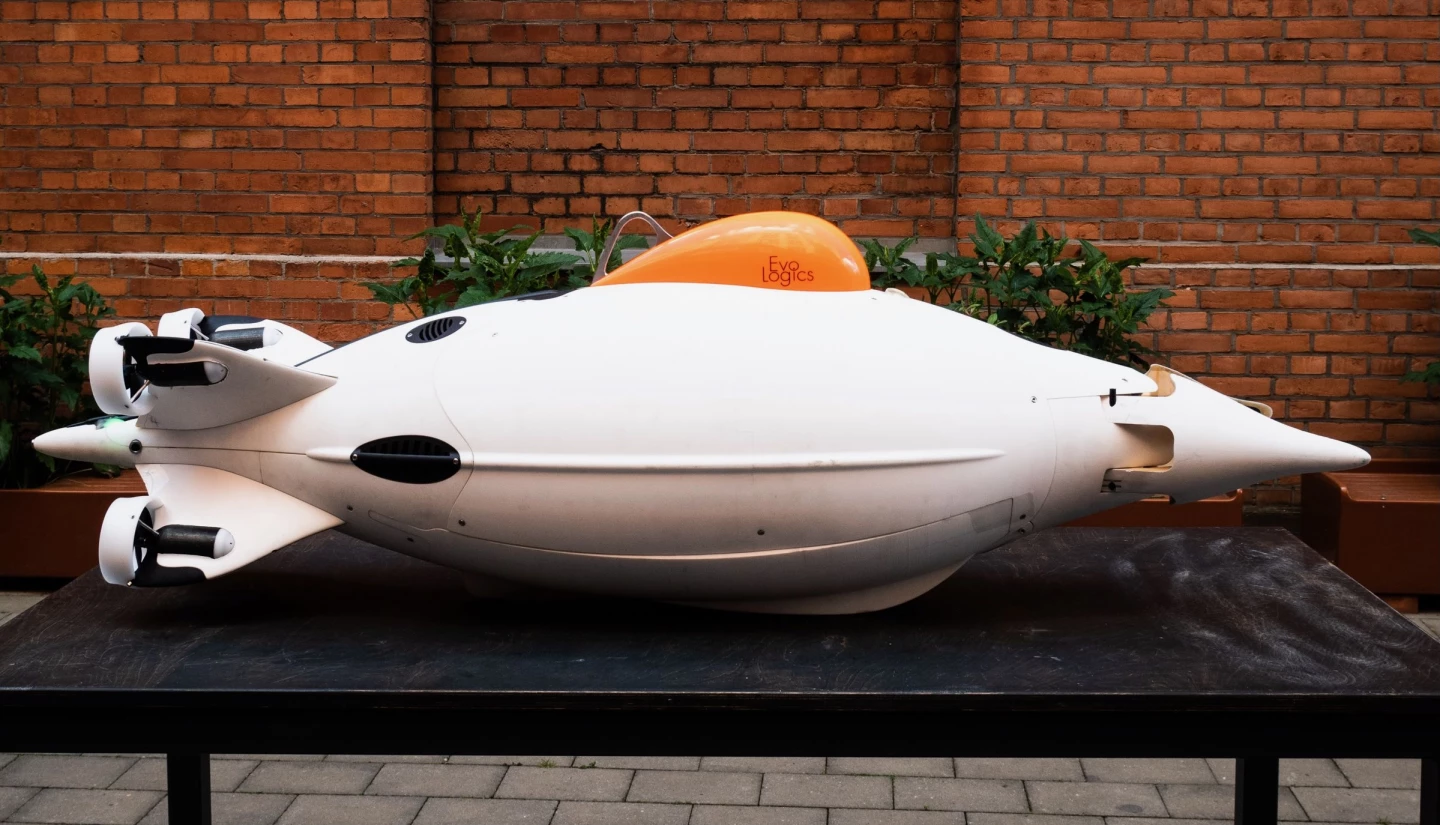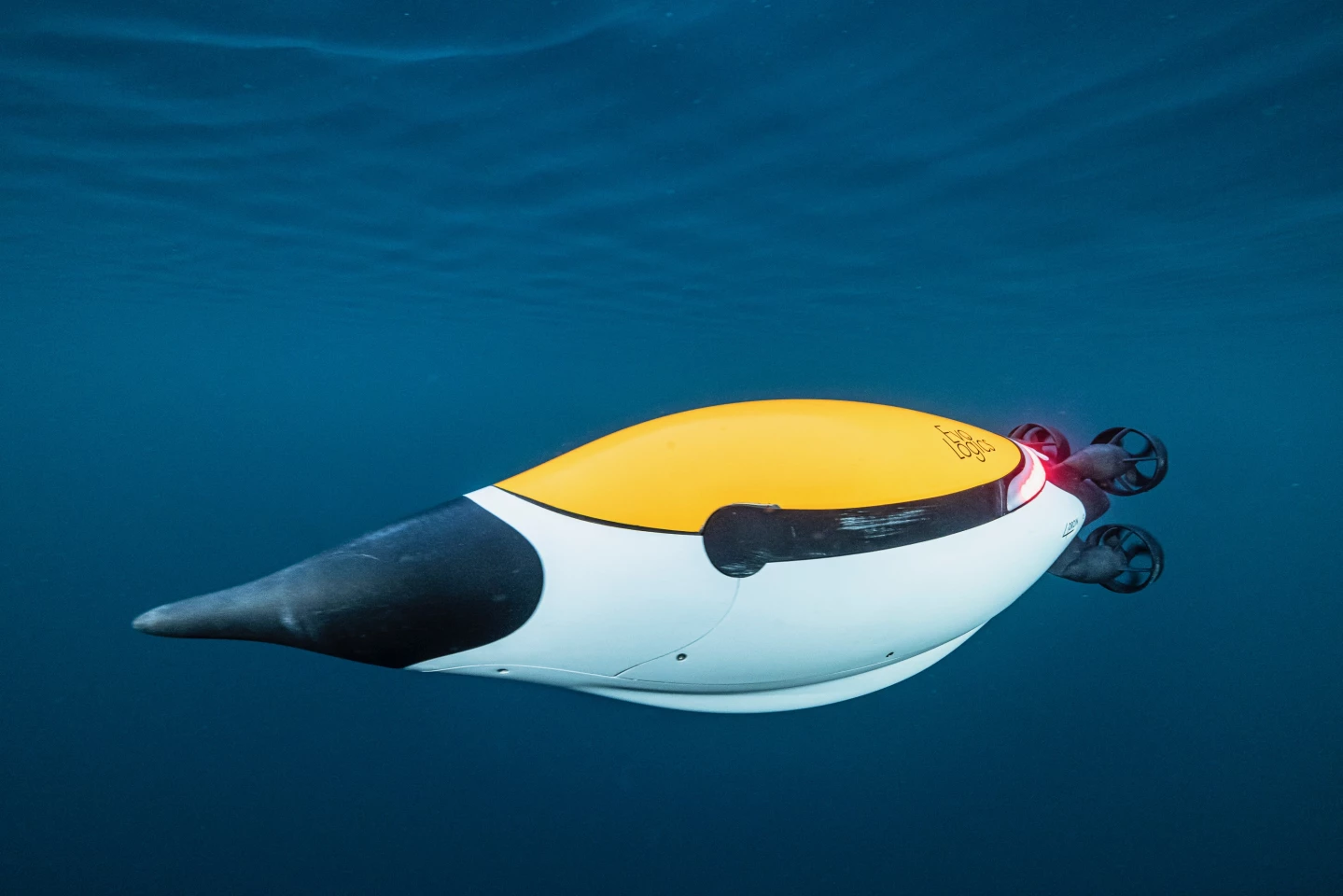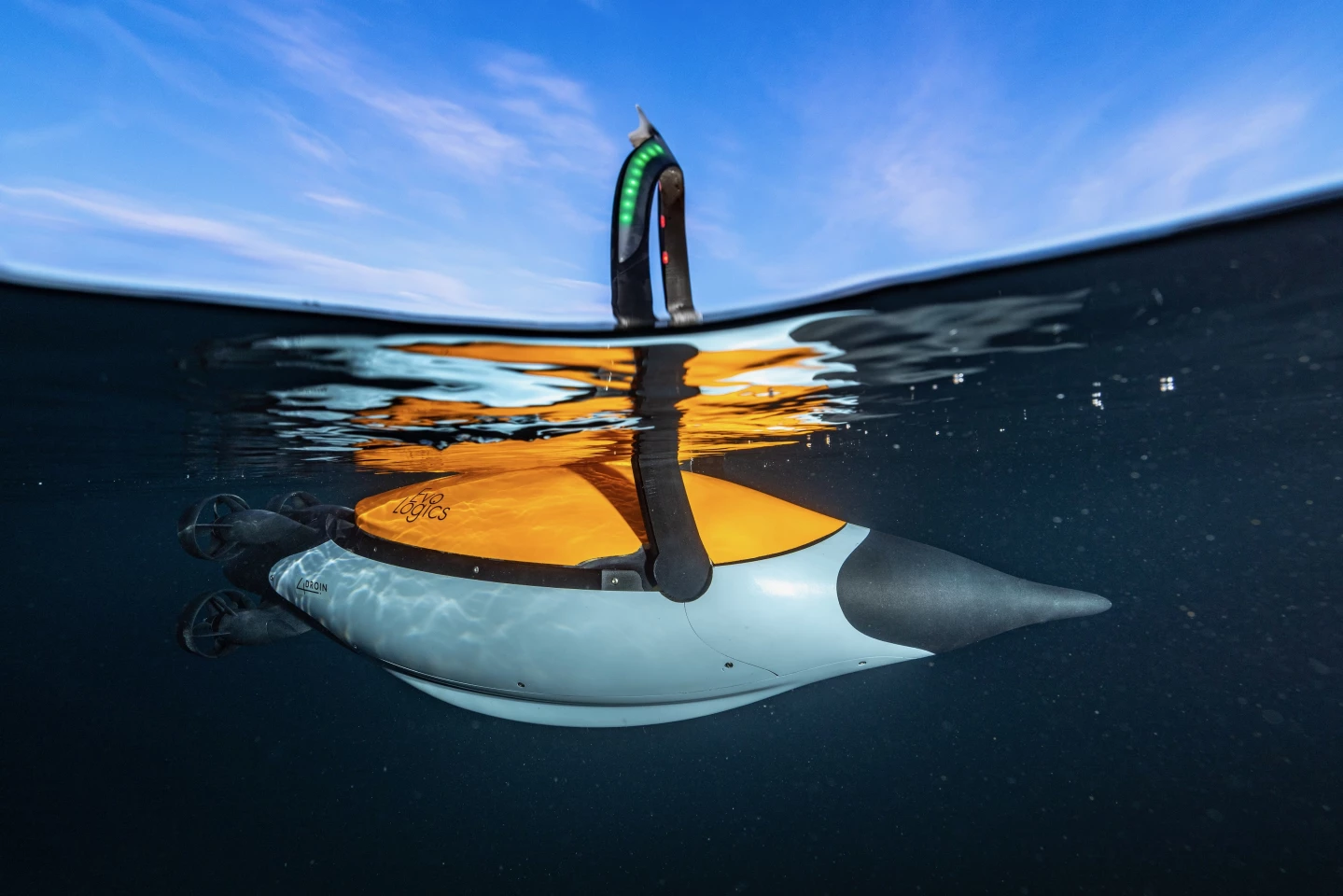Penguins are fast, fantastic swimmers, so why not make an underwater robot inspired by them? That's just what German underwater tech company EvoLogics has done, with its new-and-improved Quadroin AUV (autonomous underwater vehicle).
The Quadroin is the descendant of an experimental AUV known as the PingGuin, which EvoLogics unveiled at an outdoor demo in 2020. That bot was created in collaboration with Prof. Burkard Baschek of the Helmholtz-Zentrum Hereon research institute, and its design drew upon Dr. Rudolf Bannasch's field studies of Adélie penguin locomotion.
In fact, the general idea goes back considerably further than that. In 2009, EvoLogics developed a PingGuin-like concept demonstrator for German electrical automation firm Festo. That gizmo was called the AquaPenguin.

The actual Quadroin version of the technology debuted in May of 2021. Like the PingGuin, it was intended for use in the Helmholtz-Zentrum Hereon institute's MUM (Modifiable Underwater Mothership) initiative.
As a key part of that project, swarms of the AUVs would gather data on ocean eddies via onboard sensors. Among other things, those instruments were capable of measuring the water's temperature, pressure, oxygen content, conductivity and fluorescence at various depths.
And that brings us to the new 2nd-generation Quadroin, which was announced just last month.

Intended for wider scientific usage, it features additional instruments such as side-scan sonar for acoustic imaging of the seafloor, along with one forward-facing and one downward-facing HD camera – both cameras are assisted in dark conditions by dimmable LED spotlights.
Utilizing its four rear thrusters, the robot can dive to a maximum depth of 150 m (492 ft), has a top speed of 18.5 km/h (11.5 mph) and can carry up to 3 kg (6.6 lb) of gear. One six-hour charge of its lithium-ion battery pack should reportedly be good for 10 hours of runtime at a cruising speed of 7 km/h (4.5 mph).
A house-brand AI object recognition module detects items picked up by the sonar or cameras, plus it's part of the collision-avoidance system. There's also now an integrated Nortek Nucleus1000 subsea navigation package, which helps the bot keep track of its whereabouts.

Like other AUVs, the Quadroin is designed to autonomously move along a preprogrammed underwater path after being launched from a ship or the shore, gathering data as it does so. The recorded data can be transmitted by the AUV when it surfaces, or simply downloaded from it back at the base.
The Quadroin transmits its data via Wi-Fi or an optional Iridium satellite module. Both systems, along with the onboard GNSS (global navigation satellite system), utilize an arch-shaped multifunctional antenna that automatically flips up from the AUV's back when it surfaces. As an added bonus, flashing red and green LEDs on that antenna help users spot the robot when retrieving it.
An EvoLogics representative tells us that the new Quadroin should enter production in the fourth quarter of this year, and that pricing is available to commercial clients upon request. You can see the AUV in underwater action, in the video below.
Source: EvoLogics








